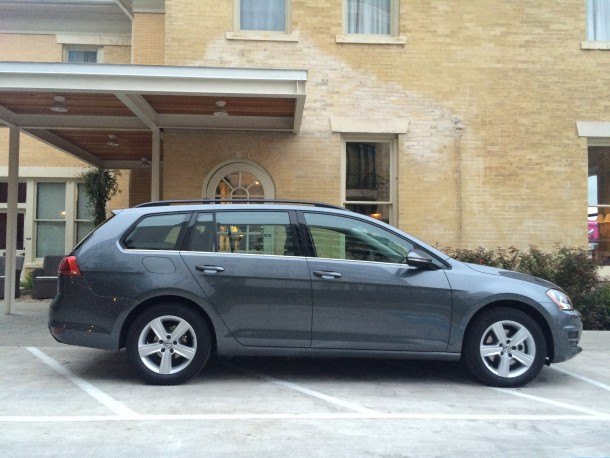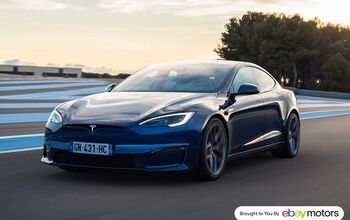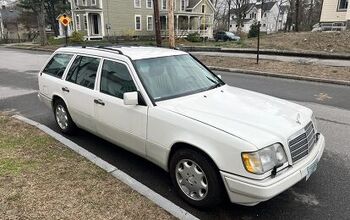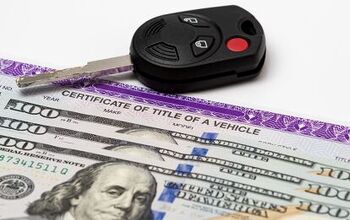Report: Volkswagen Lobbied for More Tax Credits for Diesels

Volkswagen lobbied hard in 2011 to receive the same — or higher — clean vehicle credits as electric cars, the New York Times reported Wednesday.
“They wanted a special deal for diesel cars that we now know weren’t even meeting the standard,” Margo Oge, a former director of the E.P.A. Office of Transportation and Air Quality, told the New York Times.
The LA Times reported that roughly $51 million in credits was paid by taxpayers in 2009 for diesel cars that lied about mileage and emissions — essentially a cheap bar trick.
A U.S. Senate committee is investigating possible fraud by the automaker for receiving taxpayer money for cars that spewed up to 40 times more nitrogen oxide than allowed. U.S. Sens. Orrin Hatch and Ron Wyden sent a letter to the automaker Tuesday, according to Automotive News, asking how the automaker certified its car for a $1,300 credit based on mileage in 2008.
The New York Times report said Volkswagen lobbied federal authorities for higher incentives on their diesel vehicles, claiming that they were — in some cases — better than electric vehicles.
“These people had religion,” Oge told the New York Times. “And that religion was diesel. They simply did not believe in electric powertrains and thought they were a waste of time.”
Oge said that now-suspended engineer Wolfgang Hatz was particularly outspoken about the tax credits going to diesel cars. The Wall Street Journal reported that investigators have focused their attention on Hatz, who was Volkswagen’s chief engineer at the time, and Ulrich Hackenberg who was on Volkswagen’s board for development.
According to Oge, who is now a vice chairman at DeltaWing Technologies, representatives from Volkswagen in Germany were upset when authorities didn’t grant the same credits to those cars.
“I never had a problem dealing with the Americans. The U.S. Volkswagen people would always come and apologize to us after meeting with the Germans,” she told the Times. “My sense was that things were being dictated by Germany.”

More by Aaron Cole
Latest Car Reviews
Read moreLatest Product Reviews
Read moreRecent Comments
- Corey Lewis It's not competitive against others in the class, as my review discussed. https://www.thetruthaboutcars.com/cars/chevrolet/rental-review-the-2023-chevrolet-malibu-last-domestic-midsize-standing-44502760
- Turbo Is Black Magic My wife had one of these back in 06, did a ton of work to it… supercharger, full exhaust, full suspension.. it was a blast to drive even though it was still hilariously slow. Great for drive in nights, open the hatch fold the seats flat and just relax.Also this thing is a great example of how far we have come in crash safety even since just 2005… go look at these old crash tests now and I cringe at what a modern electric tank would do to this thing.
- MaintenanceCosts Whenever the topic of the xB comes up…Me: "The style is fun. The combination of the box shape and the aggressive detailing is very JDM."Wife: "Those are ghetto."Me: "They're smaller than a Corolla outside and have the space of a RAV4 inside."Wife: "Those are ghetto."Me: "They're kind of fun to drive with a stick."Wife: "Those are ghetto."It's one of a few cars (including its fellow box, the Ford Flex) on which we will just never see eye to eye.
- Oberkanone The alternative is a more expensive SUV. Yes, it will be missed.
- Ajla I did like this one.


































Comments
Join the conversation
The credit was for the higher fuel mileage of the vehicles. Did they fib on that one, if anything they were too low on their estimates as TDI owners will tell you, get about 5mpg higher than estimated. I don;t want a car that is dead on the road when the battery goes dead, my commute exceeds every golf cart short of a Tesla. Pat.
Trump's exit plan for illegals should include sending them back in TDIs. Sooner or later he's going to need a serious campaign manager. Mr. Trump... I'm available.